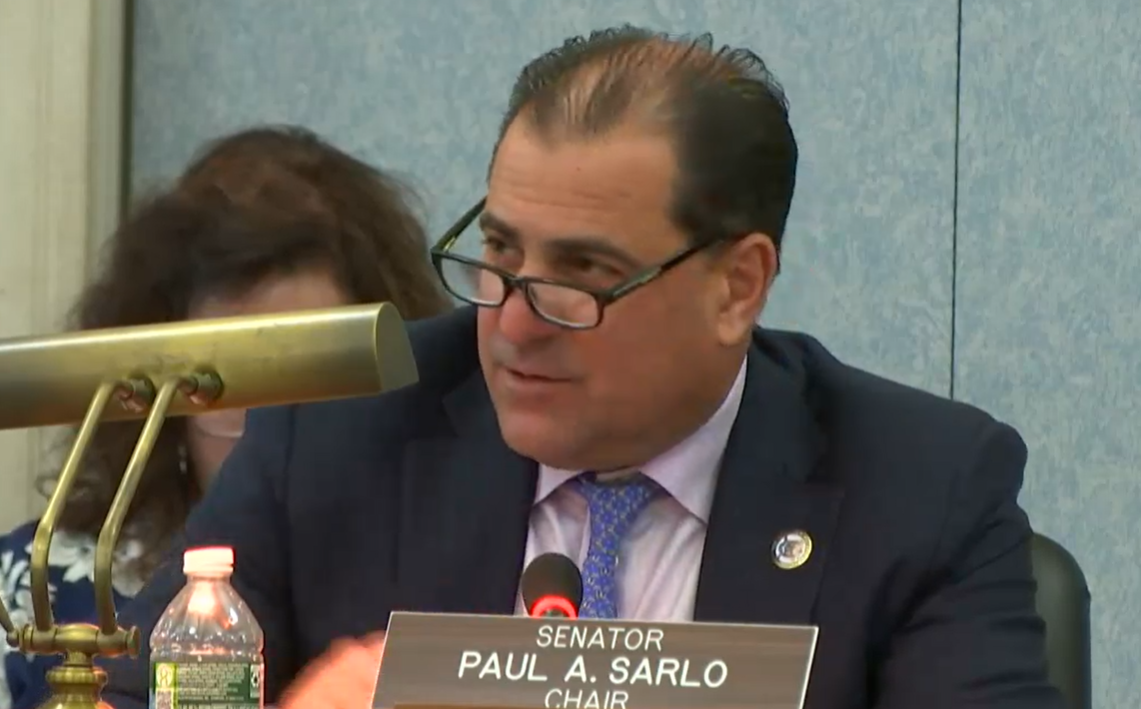
A Senate committee followed the Assembly early Monday evening and endorsed an OPRA-reform bill, but even supporters said it’s not the end of the game.
Paul Sarlo, the committee chair, said the “final product” will be different.
Andrew Zwicker was the only Democrat who voted “no,” saying there were “serious problems” with the bill.
No votes were also cast by Republicans Doug Steinhardt, Mike Testa and Declan O’Scanlan.
Sarlo compared the process to a “clearinghouse,” suggesting that there is more work to be done.
During hours of combined testimony before an Assembly Committee in the morning and then the Senate, opposition to the bill was intense.
Nonetheless, when Monday afternoon’s hearing began before the Senate Budget and Appropriations Committee, support for reforming, or as critics say, weakening the Open Public Records Act, or OPRA, came from government entities.
They included the League of Municipalities, the state association of counties and state school boards association.
That was really no surprise; when in doubt, government agencies lean toward privacy.
Not so much ordinary people – even some of those who are in government.
Tiffanie Fisher, a city council member in Hoboken, acknowledged that some OPRA requests she gets are annoying.
But so what? It goes with the job.
“For those with something to hide, OPRA gets in the way of corrupt practices and backroom deals,” she said.
Another woman said her OPRA requests resulted in a disreputable municipal animal shelter being shut down.
As the afternoon wore on, a stream of individuals spoke of problems they already have getting public information, adding that changes will just make things worse.
As was the case in the earlier session before the Assembly, speakers stressed that public access to government information is more important now than it was, say, 20 years ago.
They mentioned “threats to democracy” across the nation and also a more local problem – the demise of daily newspapers in New Jersey.
That even prompted Sarlo to muse about a time – not really all that long ago – when there were many more reporters than there are now roaming the halls of the Statehouse.
One man challenged the chief justification for changing OPRA – the proliferation of public record requests.
Why is that wrong, he asked. After all, if people want to know more about their government, so be it.
Sarlo insisted that he believes in transparency, contending, “We just want to cut out some of the commercialization.”
Well, we’ll see.
Later in the hearing, another interesting point was raised – the refusal of many public bodies to answer simple questions.
This is a change from the past, and not a good one. It has become common for public bodies – especially school boards – to listen to public comment and say nothing in response. There are times when simple questions are not answered.
And that is why, one woman said, OPRA requests must be filed.
Amid the Senate testimony, there was one of those quintessential Jersey moments.
State Sen. Gordon Johnson is listed as a member of the Budget and Appropriations committee. But he was not there today.
What gives?
Former Senator Loretta Weinberg said in a “tweet” that Johnson was abruptly removed from the committee because he was considered a “no” vote on the bill.
A member of the public asked the committee precisely that. What happened to Gordon Johnson?
No one on the committee said anything.
Go figure.
(Visited 116 times, 116 visits today)
The Senate Committee has recently approved a bill aimed at reforming the Open Public Records Act (OPRA) in New Jersey. The bill, which was introduced by Senator Loretta Weinberg, seeks to address some of the shortcomings and loopholes in the current OPRA law that have made it difficult for the public to access government records.
One of the key provisions of the bill is the establishment of a centralized online portal for submitting OPRA requests. This portal would streamline the process for both requesters and government agencies, making it easier and more efficient to obtain public records. Additionally, the bill would require government agencies to respond to OPRA requests within a certain timeframe, ensuring that information is provided in a timely manner.
Another important aspect of the bill is the creation of a mediation process for resolving disputes over OPRA requests. Currently, if a requester is denied access to public records, their only recourse is to file a lawsuit. The new bill would provide an alternative option for resolving disputes, potentially saving both requesters and government agencies time and money.
Overall, the reform bill aims to make the OPRA process more transparent, efficient, and accessible to the public. By addressing some of the current shortcomings in the law, the bill seeks to ensure that government records are readily available to those who seek them, promoting accountability and transparency in government operations.
The bill will now move to the full Senate for consideration, where it is expected to receive strong support. If passed into law, the reforms outlined in the bill have the potential to significantly improve the OPRA process in New Jersey, benefiting both requesters and government agencies alike.


